Pro-army Sudanese protesters rally for 2nd consecutive day in Khartoum
Sudanese protesters have rallied near the presidential palace in the Sudanese capital for a second consecutive day, demanding the dissolution of the transitional government.
Pro-military demonstrators in Khartoum on Sunday carried banners calling for the dismissal of the government, while others chanted that the transitional administration had “failed” politically and economically.
“The sit-in continues, we will not leave until the government is dismissed,” Ali Askouri, one of the organizers, was quoted as saying.
“We have officially asked the Sovereign Council,” the military-civilian body that oversees the transition, “not to interact with this government anymore,” he added.
The demonstrations have been organized by a splinter faction of the Forces for Freedom and Change (FFC), a civilian alliance that became a key plank of the transition. Critics allege that these protests are being driven by members of the military and security forces, and involve counter-revolutionary sympathizers with the former regime.
The mainstream faction of the FFC said the crisis "is engineered by some parties to overthrow the revolutionary forces... paving the way for the return of remnants of the previous regime".
Protesters on Saturday converged on the presidential palace where the transitional authorities are based. They called for General Abdel Fattah al-Burhan, head of the armed forces and Sudan's joint military-civilian Sovereign Council, to instigate a coup and seize control of the country.
Poverty stricken Sudan has been embroiled in a political crisis, driven mostly by deteriorating economic woes.
The government, which over the past months has witnessed nationwide protests, says it will fix the economy battered by decades of corruption, internal conflicts, and international sanctions.
But domestic support for the transitional government has waned in recent months amid a tough package of IMF-backed economic reforms, including the slashing of fuel subsidies and a managed float of the Sudanese pound.
The protest rally came just two days after Prime Minister Abdalla Hamdok warned that the transition was facing “the worst and most dangerous” crisis.
The African country is currently ruled by a transitional government that was installed in the aftermath of the ouster of president Omar al-Bashir in a palace coup two years ago.
The latest developments come after government said it had thwarted a coup attempt on September 2.
Commenting on the political turmoil across Sudan, Abdel Bari Atwan, editor-in-chief of London-based Rai al-Youm, wrote in an analysis on September 23 that the situation across Sudan keeps worsening since Sudan surrendered its weapons to the US-led camp in the last days of Bashir's rule, and its misfortunes escalated with the Sudanese junta "flirting" with the Zionist regime.
Last year, under pressure from the US, Sudan joined the United Arab Emirates and Bahrain in agreeing to normalize ties with Israel.Tel Aviv has been especially thankful to the United States for pushing the UAE, Bahrain, Morocco, and Sudan, to normalize ties.
Anti-military sentiments have risen across Sudan over the past few months. On September 30, thousands of Sudanese rallied in Khartoum against the military rulers. They demanded the formation of new transitional authorities that would exclusively consist of civilians. The angry protesters chanted anti-junta slogans such as “the army is Sudan’s army, not Burhan’s army.”
VIDEO | Jordanians continue rallies to denounce Israeli genocide in Gaza, Lebanon
6 Israeli soldiers commit suicide: Reports
Diplomat discourages recourse to pressure, intimidation, confrontation against Iran
UN: 2024 deadliest year for aid workers amid genocide in Gaza
Gaza health official warns of hospital shutdowns within 48 hours
Israel kills 5 more paramedics in southern Lebanon: Health ministry
Iran to launch ‘new, advanced’ centrifuges in response to IAEA resolution: AEOI
Yemen fires hypersonic missile at Israeli airbase


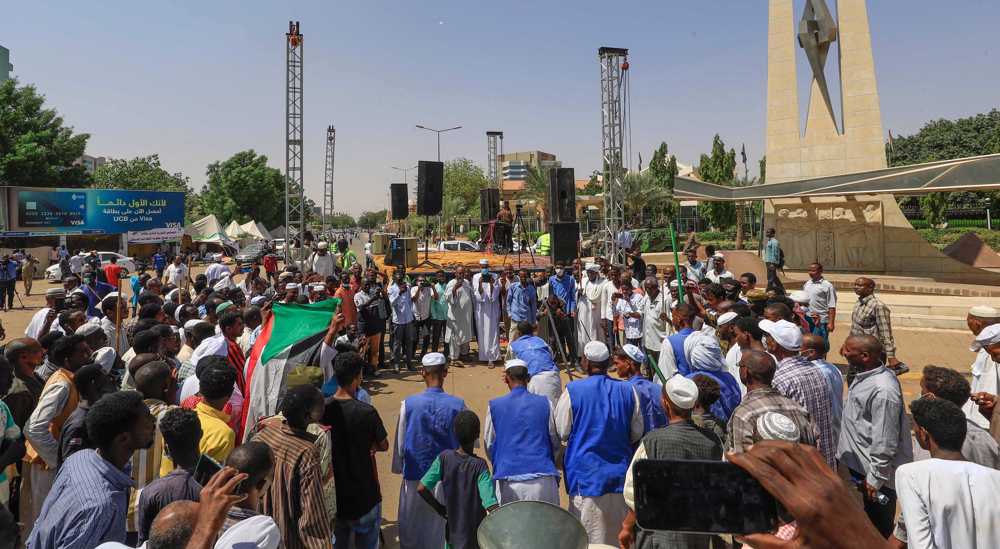
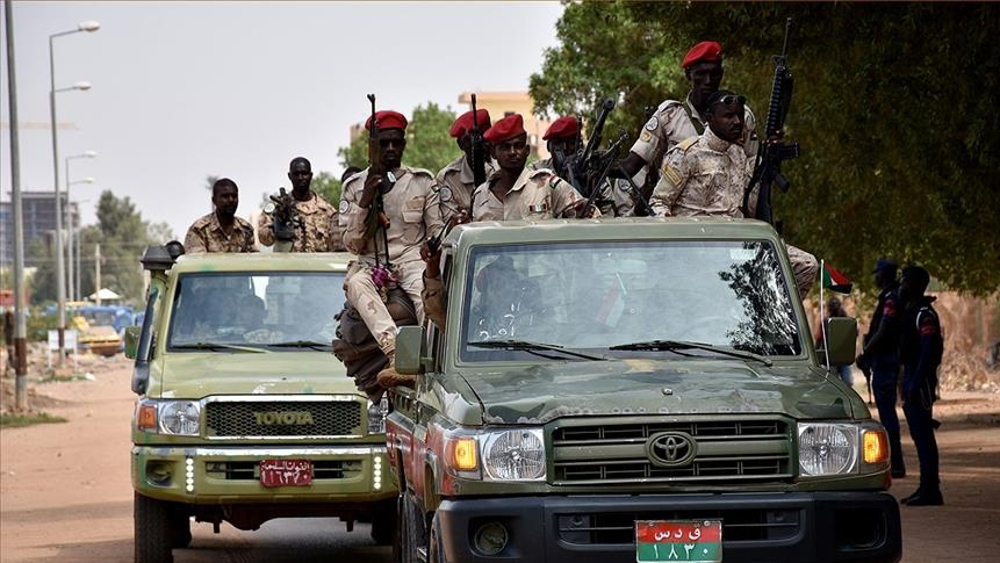
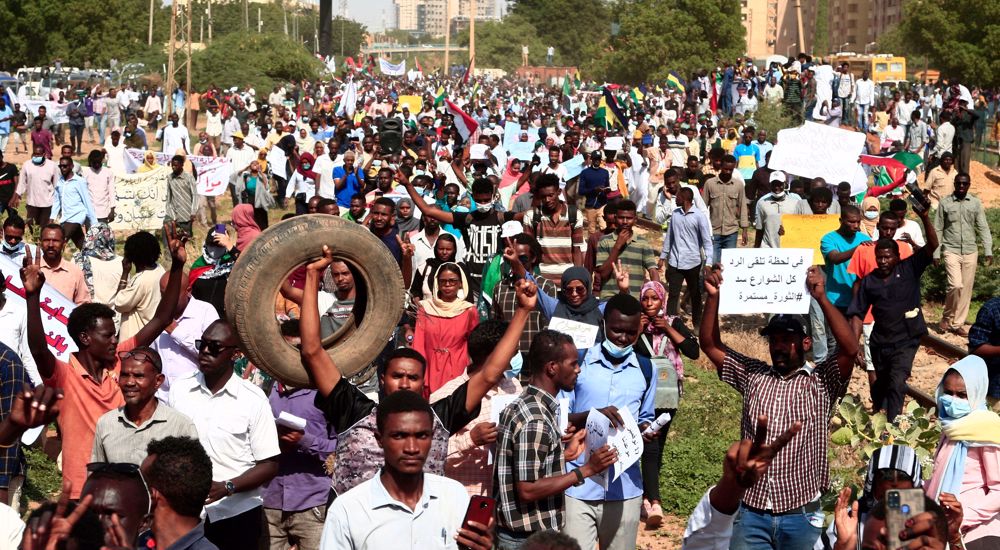
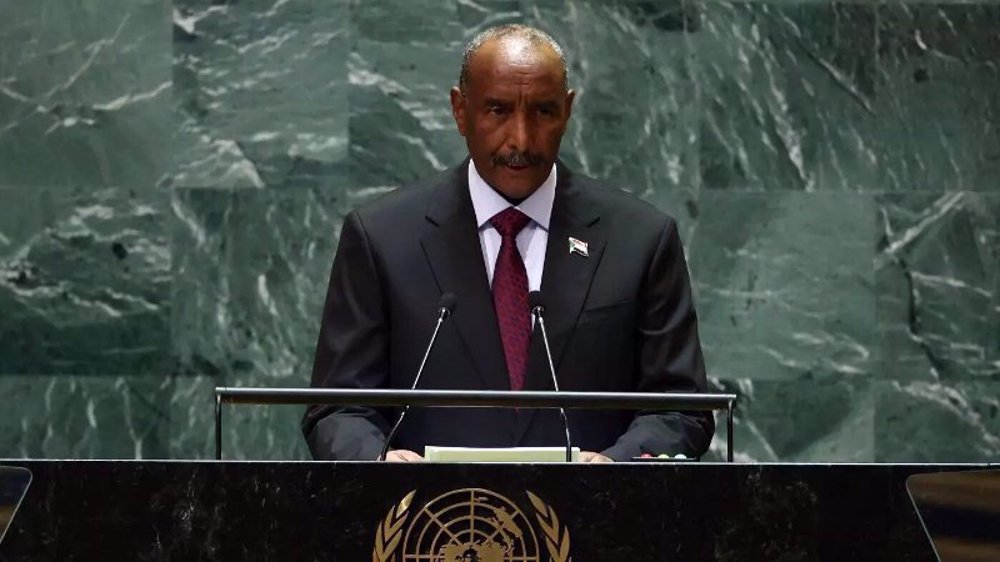
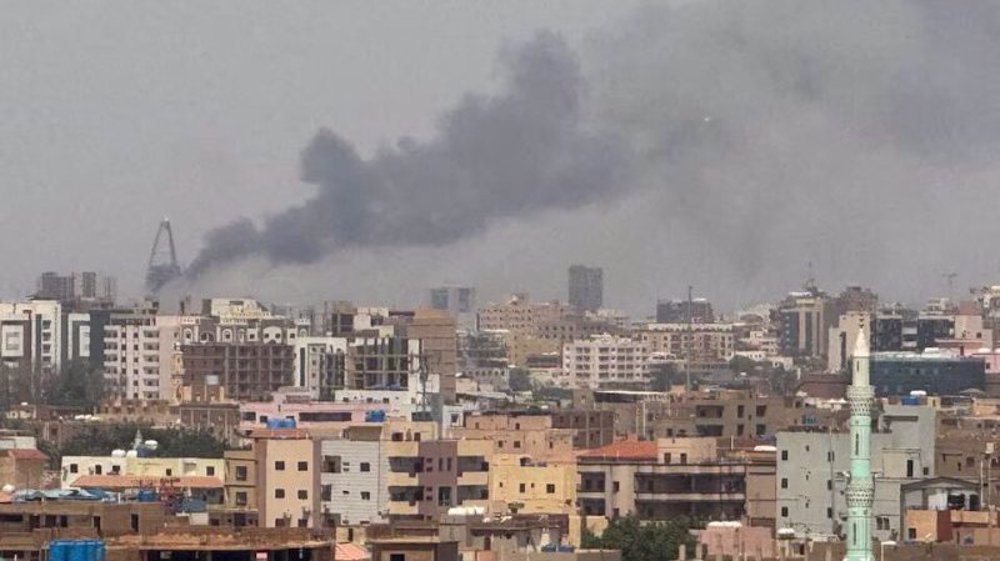
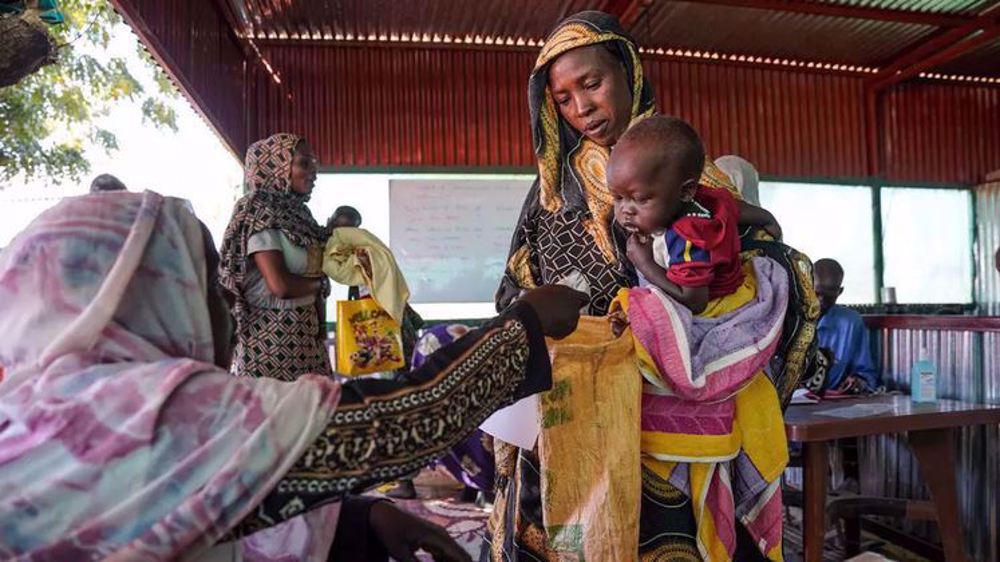



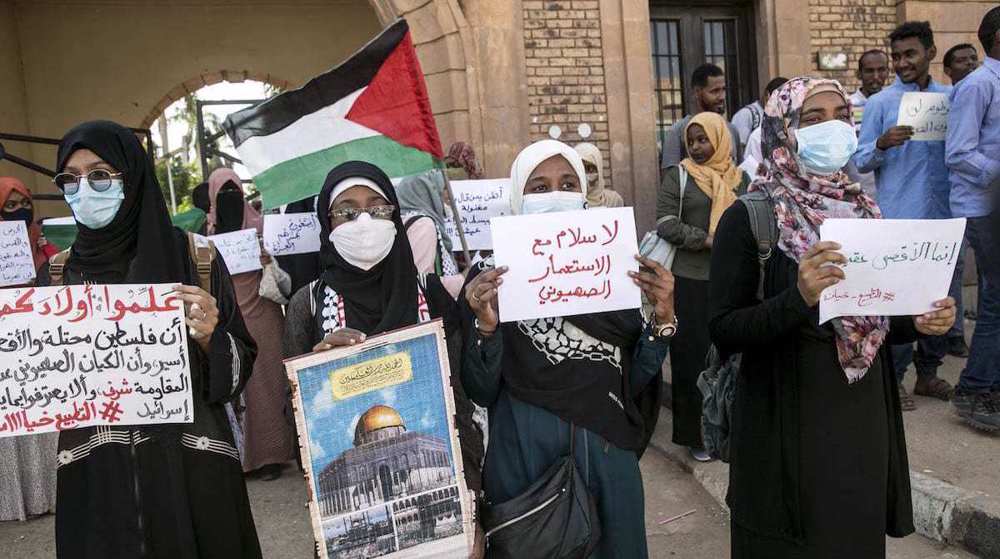
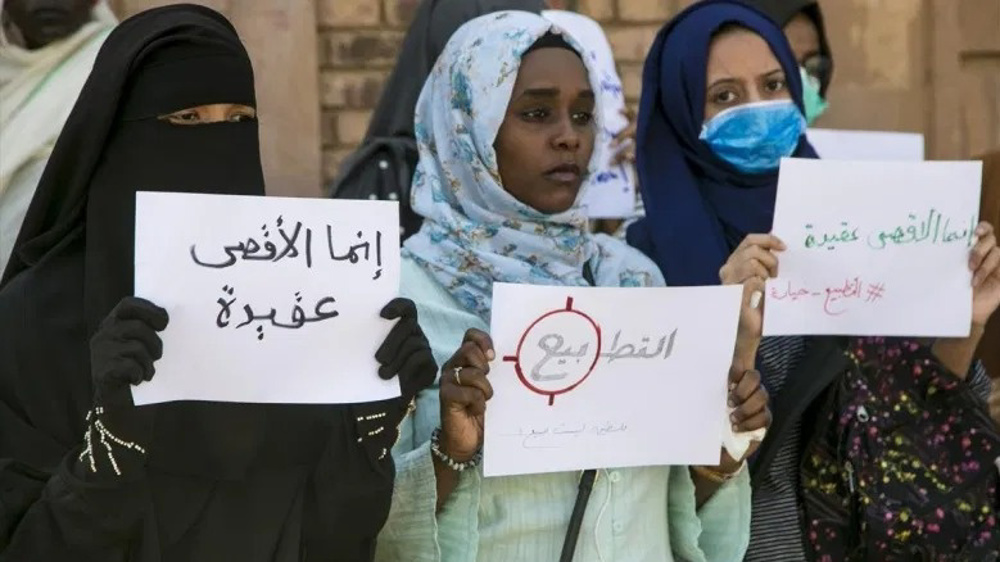
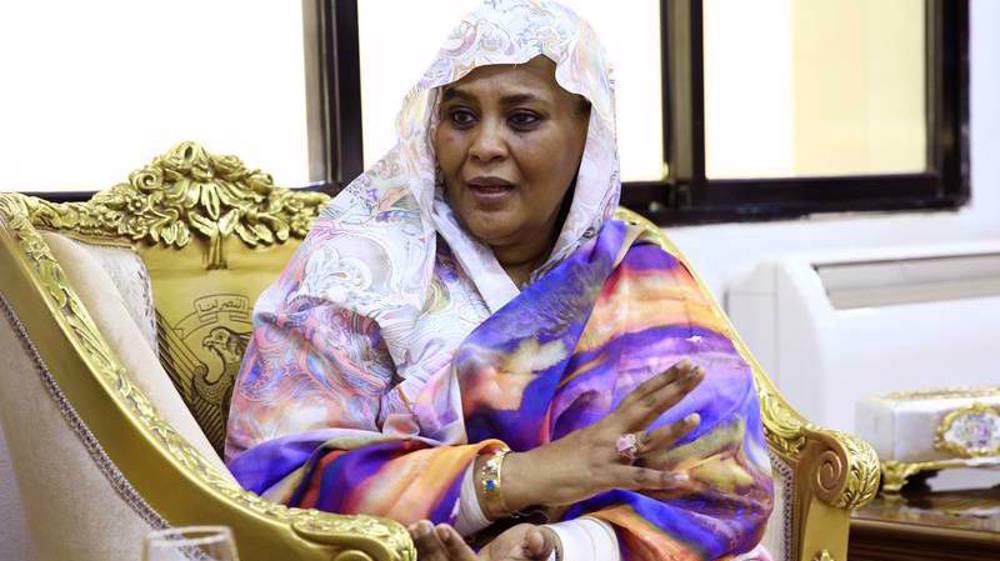
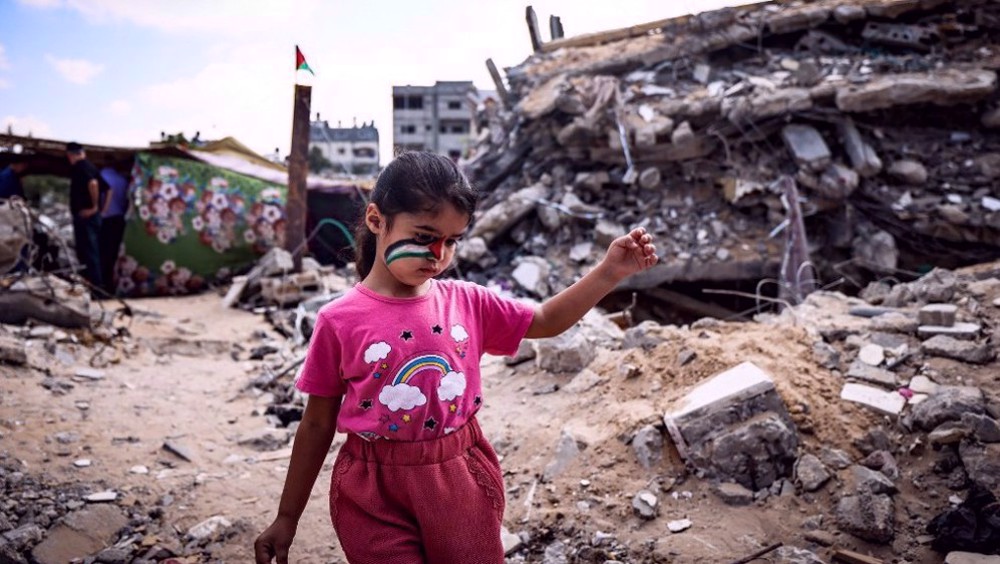
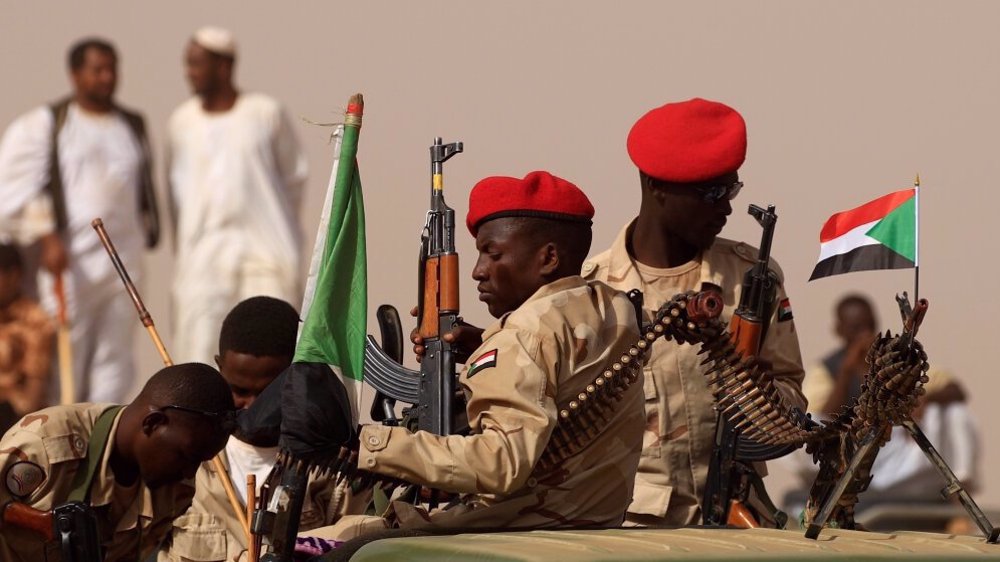
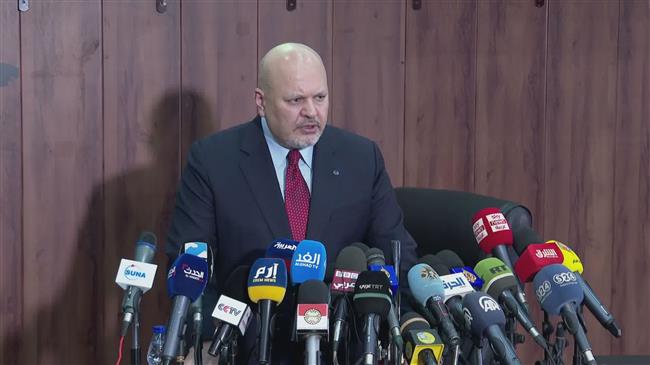
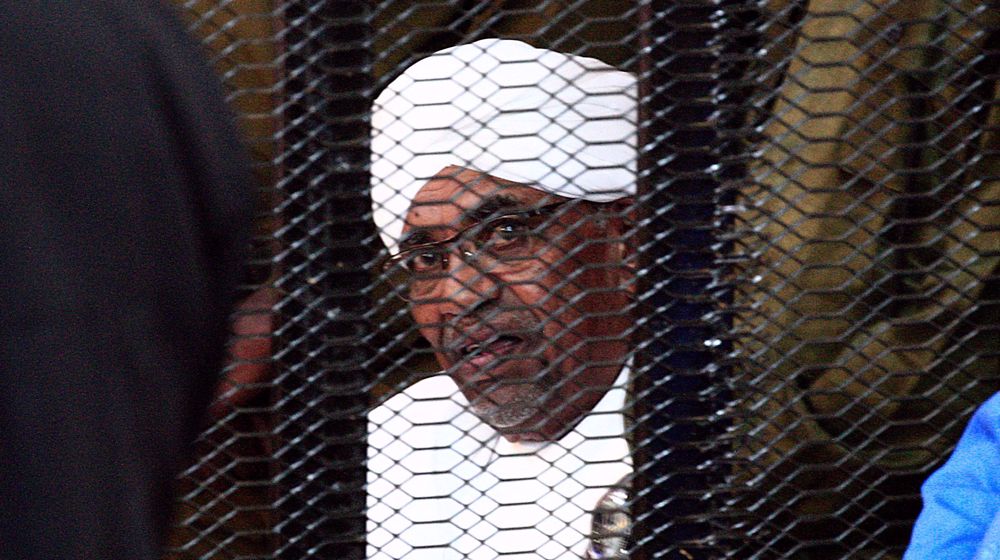
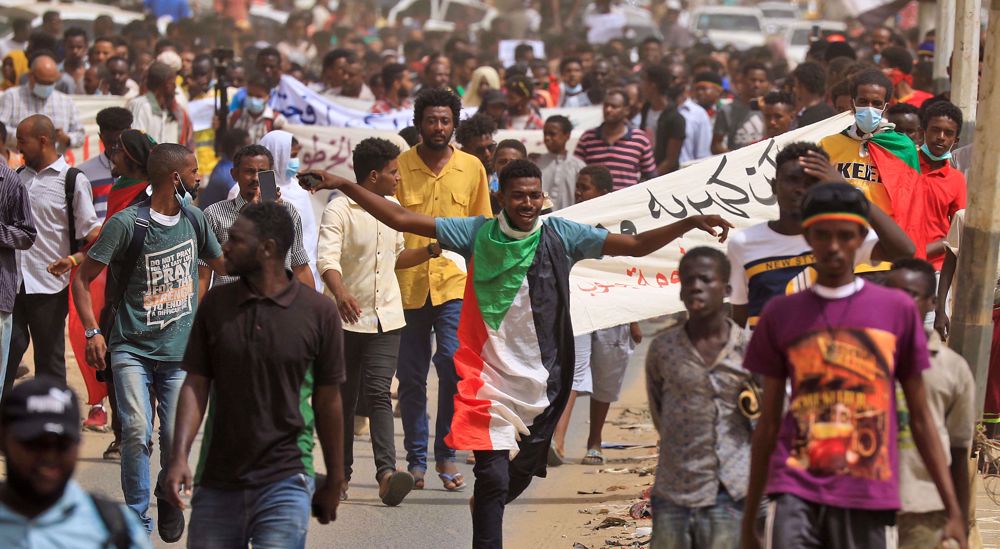
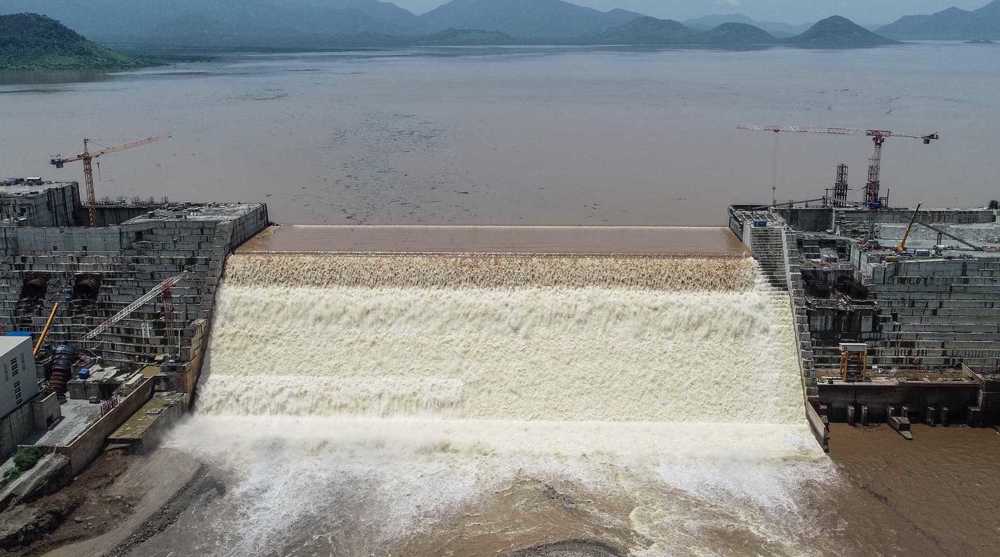

 This makes it easy to access the Press TV website
This makes it easy to access the Press TV website